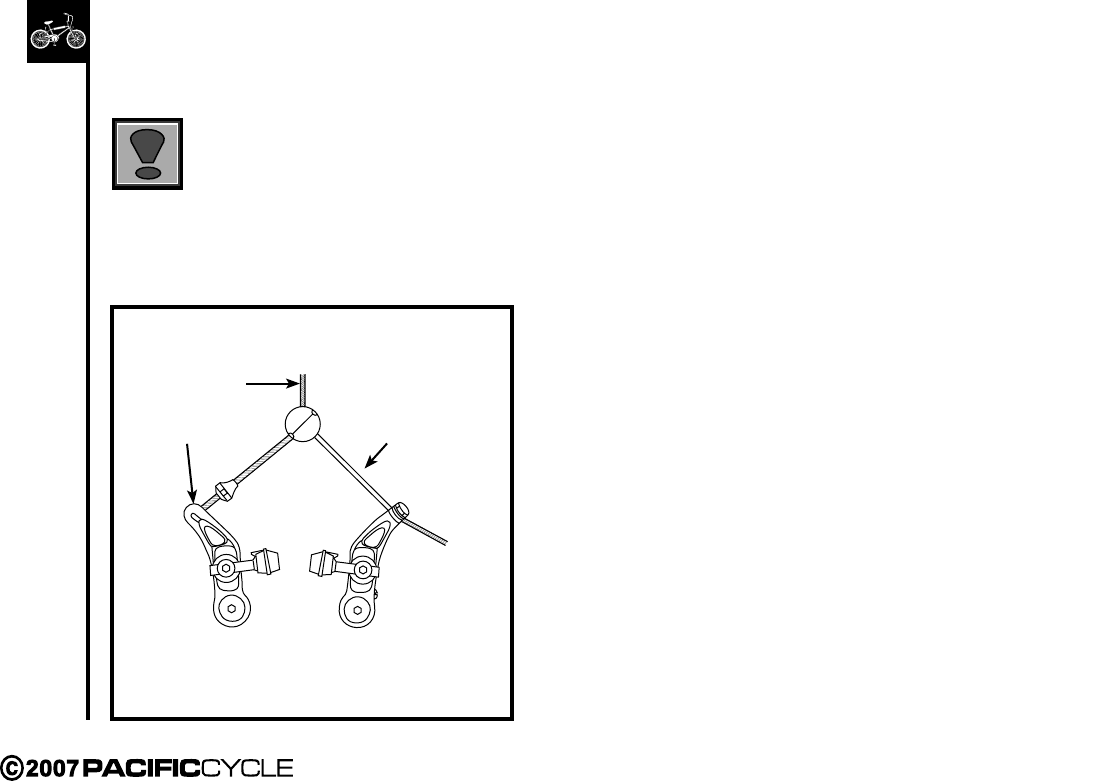
77
BRAKES
The correct adjustment and operation of your bicycle's brakes is extremely important for safe operation. Brakes should be
checked for effective operation before every ride. Frequent checking of adjustment is necessary as the control cables will
stretch and the brake pads will become worn with use.
Never ride a bicycle unless the brakes are functioning properly.
There are two types of hand operated bicycle brakes in common use: sidepull calipers and cantilever calipers.
Both utilize a handlebar mounted lever which controls a cable to operate the brake. Sidepull brakes are mounted to the
frame or fork via a single pivot point. Cantilever brakes use two brake pivot arms, each mounted on separate pivots on
either side of the frame/fork.
Inspection
Brake levers should be checked for tightness at least every three
months. They should be set in a comfortable position within easy
reach of the rider's hands, and must not be able to move on the
handlebar. Some brake levers make use of a reach adjustment screw,
which can be altered to the distance between the handlebar grip and
the lever, as required. The brake pads should be checked for correct
positioning and tightness before every ride, and the various bolts and
nuts at least every three months. Squeeze each brake lever to make
sure they operate freely and that the brake pads press hard enough
on the rims to stop the bike. There should be about 1mm - 2mm
clearance between each pad and the rim when the brakes are not
applied. The brake pads must be properly centered for maximum
contact with the rim. Replace the brake pads if they are over worn so
that the grooves or pattern cannot be seen. The brake cable wires
should be checked for kinks, rust, broken strands or frayed ends. The
outer casing should also be checked for kinks, stretched coils and
other damage. If the cables are damaged, they should be replaced.
Cantilever Brakes
Brake Cable
Brake Arm
Straddle Cable


















